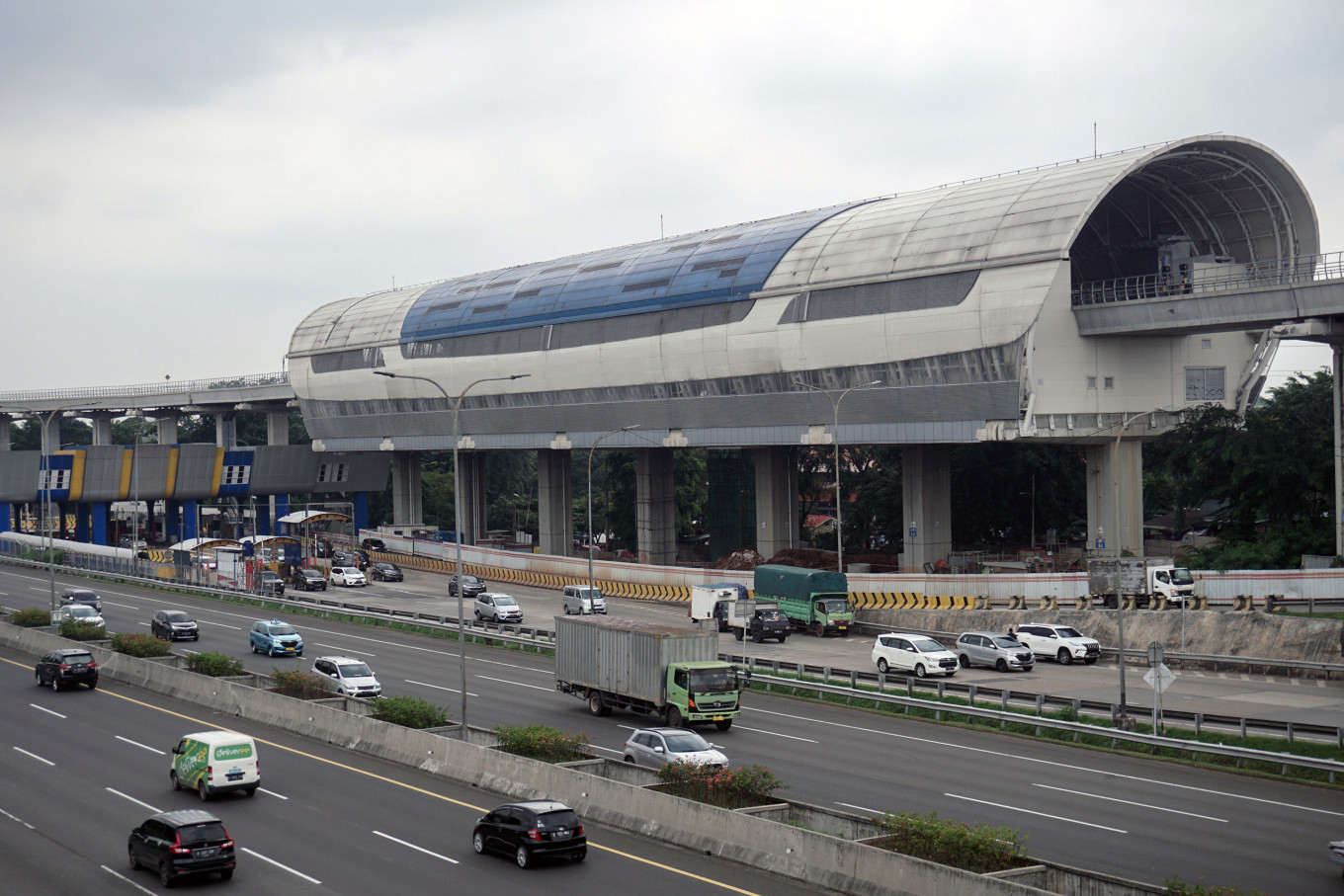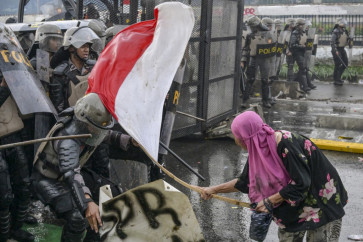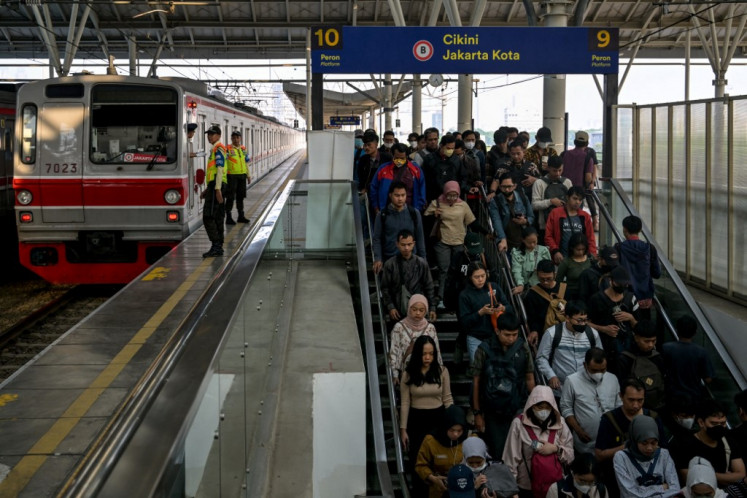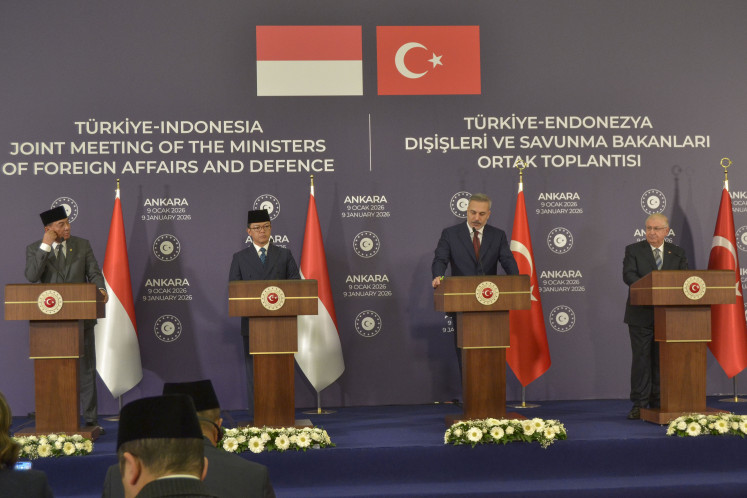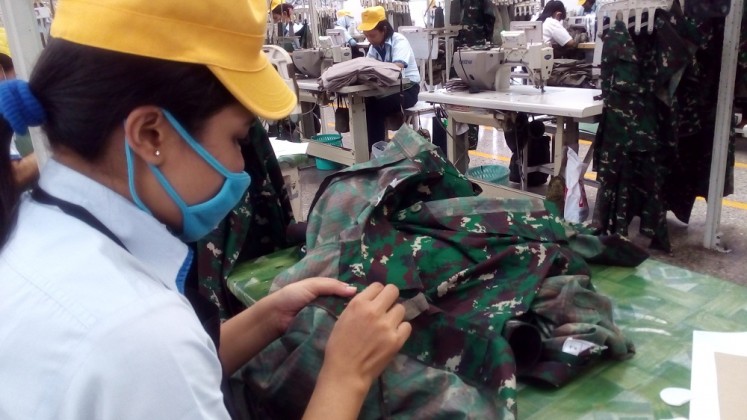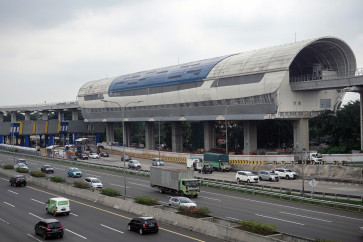Popular Reads
Top Results
Can't find what you're looking for?
View all search resultsPopular Reads
Top Results
Can't find what you're looking for?
View all search resultsAnalysis: Myriad of issues to further push back LRT Jakarta launch
Change text size
Gift Premium Articles
to Anyone
J
akarta’s Light Rail Transit (LRT) system has once again sparked controversy due to criticism regarding design flaws and the presence of 31 trainsets with varying specifications. This has added to a myriad of issues plaguing the LRT project, which has the potential to further postpone the planned commercial operation start date of August 18, 2023, and escalate the project's financial cost.
Deputy State-Owned Enterprises (SOEs) Minister Kartiko Wirjoatmodjo (Tiko) pointed out the design flaw in the LRT’s long-span bridge connecting Jl. Gatot Subroto to Jl. HR Rasuna Said in Kuningan, South Jakarta. He noted that the curved railway track is not wide or inclined enough, forcing the trainsets to move slower when crossing the bridge.
Tiko also revealed that the 31 LRT trainsets, which are manufactured by PT Industri Kereta Api (INKA) and have signalling software provided by Siemens, all have different specifications. These specification disparities have hindered the precise alignment of the train doors with the platform, prompting Siemens to undertake significant and costly software adjustments.
Tiko criticized the lack of coordination among key players that has existed since the project’s inception: PT Adhi Karya as infrastructure developer, PT INKA as the train manufacturer and Siemens as the software provider.
President Joko “Jokowi” Widodo dismissed Tiko’s criticism, saying that the Jakarta LRT project was a national achievement, with most of the work done by local players. Flaws and deficiencies have been corrected along the way, and the President instructed his ministers to ensure the safety of the passengers and therefore prolong the testing period. Jokowi’s instructions ultimately pushed back the LRT commercial operation date (COD) of August 18 to the end of the month.
This delay, however, is short compared to previous setbacks. Land acquisition issues at several operational points caused the COD deadline to be postponed from late 2021 to August 2022. Furthermore, the collision between two LRT trains during equipment testing in October 2021 further pushed back the COD to August 18, 2023. Now, it is once again being pushed back, this time to the end of this month. Some people question whether the LRT will even be ready by then.
The deviation from the COD target has resulted in a larger financial burden for the LRT project, which is to connect Jakarta with Bekasi in the east and Bogor and Depok in the south. Initially estimated at Rp 23 trillion (US$ 1.5 billion), the project's investment cost has surged to Rp 32.5 trillion. This figure does not yet encompass the subsidies that the government will provide to prevent the LRT from operating at a loss once commercially operational. The financing scheme has also undergone changes. While initially intended to be solely funded by the state budget (APBN), SOEs have been compelled to share the financing burden through investments indirectly supported by state capital injection (PMN) and guarantees.

